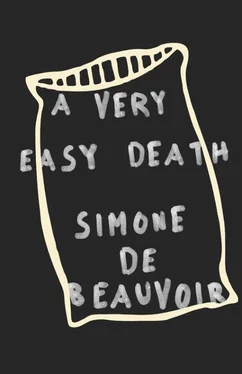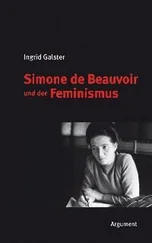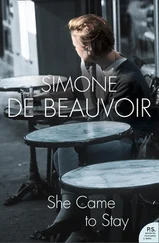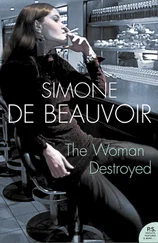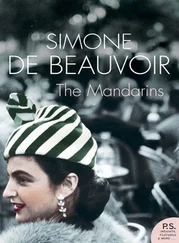Simone de Beauvoir - A Very Easy Death
Здесь есть возможность читать онлайн «Simone de Beauvoir - A Very Easy Death» весь текст электронной книги совершенно бесплатно (целиком полную версию без сокращений). В некоторых случаях можно слушать аудио, скачать через торрент в формате fb2 и присутствует краткое содержание. Город: New York, Год выпуска: 2012, ISBN: 2012, Издательство: Pantheon Books, Жанр: Биографии и Мемуары, на английском языке. Описание произведения, (предисловие) а так же отзывы посетителей доступны на портале библиотеки ЛибКат.
- Название:A Very Easy Death
- Автор:
- Издательство:Pantheon Books
- Жанр:
- Год:2012
- Город:New York
- ISBN:978-0-307-83219-1
- Рейтинг книги:4 / 5. Голосов: 1
-
Избранное:Добавить в избранное
- Отзывы:
-
Ваша оценка:
- 80
- 1
- 2
- 3
- 4
- 5
A Very Easy Death: краткое содержание, описание и аннотация
Предлагаем к чтению аннотацию, описание, краткое содержание или предисловие (зависит от того, что написал сам автор книги «A Very Easy Death»). Если вы не нашли необходимую информацию о книге — напишите в комментариях, мы постараемся отыскать её.
The Sunday Telegraph
Powerful, touching, and sometimes shocking, this is an end-of-life account that no reader is likely to forget.
A Very Easy Death — читать онлайн бесплатно полную книгу (весь текст) целиком
Ниже представлен текст книги, разбитый по страницам. Система сохранения места последней прочитанной страницы, позволяет с удобством читать онлайн бесплатно книгу «A Very Easy Death», без необходимости каждый раз заново искать на чём Вы остановились. Поставьте закладку, и сможете в любой момент перейти на страницу, на которой закончили чтение.
Интервал:
Закладка:
Don’t let them operate on her .
‘Yes, I agree. When?’
‘Be here by two. They will not tell her they are going to operate; they will say they are going to X-ray her again.’
‘Don’t let them operate on her.’ A frail argument against the decision of a specialist; a frail argument against my sister’s hopes. Maman might not wake up again? That was not the worst way out. And I did not imagine that a surgeon would take that risk: she would get over it. Would the operation hasten the development of the disease? No doubt that is what Mme Gontrand had meant. But with the intestinal obstruction at this stage Maman could not survive three days, and I was terribly afraid that her death might be appalling.
An hour later the telephone, and Poupette sobbing, ‘Come at once. They have operated: they found a huge cancerous tumour …’ Sartre went down with me; he took me in a taxi as far as the nursing-home. My throat was constricted with anguish. A male nurse showed me the lobby between the entrance-hall and the operating-theatre where my sister was waiting. She was so upset that I asked for a tranquillizer for her. She told me that the doctors had warned Maman, in a very natural voice, that before X-raying her they would give her a sedative injection; Dr N had put her to sleep; Poupette had held Maman’s hand right through the anaesthetizing, and I could imagine what a trial it had been for her, the sight of that old, ravaged body, quite naked – that body which was her mother’s. Maman’s eyes had turned up; her mouth had opened: Poupette would never be able to forget that face, either. They had wheeled her into the operating-theatre and Dr N had come out a moment later: four pints of pus in the abdomen, the peritoneum burst, a huge tumour, a cancer of the worst kind. The surgeon was removing everything that could be removed. While we were there, waiting, my cousin Jeanne came in with her daughter Chantal; she had just come from Limoges and she thought she would find Maman quietly in bed: Chantal had brought a book of crossword puzzles. We discussed what we should say to Maman when she woke up. It was easy enough: the X-ray had shown that she had peritonitis and an operation had been decided upon at once.
Maman had just been taken up to her room, N told us. He was triumphant: she had been half-dead that morning and yet she had withstood a long and serious operation excellently. Thanks to the very latest methods of anaesthesia her heart, lungs, the whole organism had continued to function normally. There was no sort of doubt that he entirely washed his hands of the consequences of that feat. My sister had said to the surgeon, ‘Operate on Maman. But if it is cancer, promise me that you will not let her suffer.’ He had promised. What was his word worth?
Maman was sleeping, lying flat on her back, her face the colour of wax, her nose pinched, her mouth open. My sister and a night-nurse would sit up with her. I went home; I talked to Sartre; we played some Bartók. Suddenly, at eleven, an outburst of tears that almost degenerated into hysteria.
Amazement. When my father died I did not cry at all. I had said to my sister, ‘It will be the same for Maman.’ I had understood all my sorrows up until that night: even when they flowed over my head I recognized myself in them. This time my despair escaped from my control: someone other than myself was weeping in me. I talked to Sartre about my mother’s mouth as I had seen it that morning and about everything I had interpreted in it – greediness refused, an almost servile humility, hope, distress, loneliness – the loneliness of her death and of her life – that did not want to admit its existence. And he told me that my own mouth was not obeying me any more: I had put Maman’s mouth on my own face and in spite of myself, I copied its movements. Her whole person, her whole being, was concentrated there, and compassion wrung my heart.
-
I DO NOT think my mother can have been a happy child. I only remember her speaking of one pleasant memory—her grandmother’s garden in a village in Lorraine, and the little plums and greengages they ate, warm from the tree. She never told me anything about her childhood at Verdun. There is a photograph of her, aged eight and dressed as a daisy. ‘You had a pretty costume,’ I said. ‘Yes,’ she answered, ‘but the dye came out of my green stockings and worked deep into my skin. It took three days to get rid of it.’ Her voice was sullen: a past full of bitterness was running through her mind. She complained to me more than once of her mother’s coldness. When my grandmother was fifty she was detached and even haughty, a woman who laughed little, gossiped much, and showed no more than a conventional affection for Maman: she was fanatically devoted to her husband, and her children had only a secondary place in her life. Speaking to me of my grandfather, Maman often said resentfully, ‘He never had time for anyone but your Aunt Lili.’ Lili, five years younger, pink and fair, aroused a fervent, ineradicable jealousy in her sister. Until I began to reach adolescence Maman ascribed to me the loftiest intellectual and moral qualities: she identified herself with me and she humiliated and slighted my sister – Poupette was the younger sister, pink and fair, and without realizing it, Maman was taking her revenge upon her.
She told me proudly about Les Oiseaux and the Mother Superior, whose good opinion had consoled her self-esteem. She showed me a photograph of her class: six girls sitting in a park between two nuns. There are four boarders, dressed in black, and two day-girls, in white frocks – Maman and one of her friends. They are all wearing high tuckers, long skirts, severe buns. There is no expression whatever in their eyes. Maman started life corseted in the most rigid of principles – provincial propriety and the morals of a convent-girl.
When she was twenty she suffered another emotional set-back: the cousin she had fallen in love with preferred another girl, also a cousin, my Aunt Germaine. All her life long she retained an underlying sensitivity and rancour arising from these disappointments.
When she was with my father she came into flower. She loved him, she admired him, and there is not the slightest doubt that for ten years he made her entirely happy physically. He loved women; he had had many affairs; and like Marcel Prévost, whom he read with delight, he thought that a young wife ought not to be treated with less ardour than a mistress. Maman’s face, with that faint down on her upper lip, betrayed a warm voluptuousness. The understanding between them was perfectly apparent: he stroked her arm, petted her, whispered affectionate nonsense. I see her again as I saw her one morning – I was six or seven – barefoot on the red carpet of the corridor in her long white linen nightgown; her hair fell in a twist on the back of her neck and I was struck by the radiance of her smile, which, for me, was associated in some mysterious way with that bedroom she had just left; I scarcely recognized this brilliant vision as the respectable grown-up who was my mother.
But nothing, ever, wipes out childhood. And Maman’s happiness was not unalloyed. My father’s selfishness burst out as early as their honeymoon: she wanted to see the Italian Lakes; they went no further than Nice, where the racing season had just begun. She often recalled this disappointment, not with any grudge, but not without regret. She loved travelling. ‘I should have liked to be an explorer,’ she used to say. The happiest times of her young days were those excursions on bicycle or on foot, through the Vosges or Luxembourg, which my grandfather organized. She had to give up many of the things she had dreamt of: my father’s wishes always came before hers. She stopped seeing her own friends, whose husbands he found boring. He only enjoyed himself in drawing-rooms or on the stage. She cheerfully followed him there: she liked social events. But her beauty did not protect her from spitefulness: she was provincial and not very quick-witted; people smiled at her awkwardness in that very Parisian society. Some of the women she met there had had affairs with my father: I can imagine whisperings, betrayals. In his desk my father kept the photograph of his last mistress, a pretty, brilliant woman who sometimes came to the house with her husband. Thirty years later he said to Maman, laughing, ‘You did away with her photo.’ She denied it, but he was not convinced. One thing is sure, and that is that even at the time of her honeymoon she suffered both in her love and her pride. She was passionate and headstrong: her wounds healed slowly.
Читать дальшеИнтервал:
Закладка:
Похожие книги на «A Very Easy Death»
Представляем Вашему вниманию похожие книги на «A Very Easy Death» списком для выбора. Мы отобрали схожую по названию и смыслу литературу в надежде предоставить читателям больше вариантов отыскать новые, интересные, ещё непрочитанные произведения.
Обсуждение, отзывы о книге «A Very Easy Death» и просто собственные мнения читателей. Оставьте ваши комментарии, напишите, что Вы думаете о произведении, его смысле или главных героях. Укажите что конкретно понравилось, а что нет, и почему Вы так считаете.
